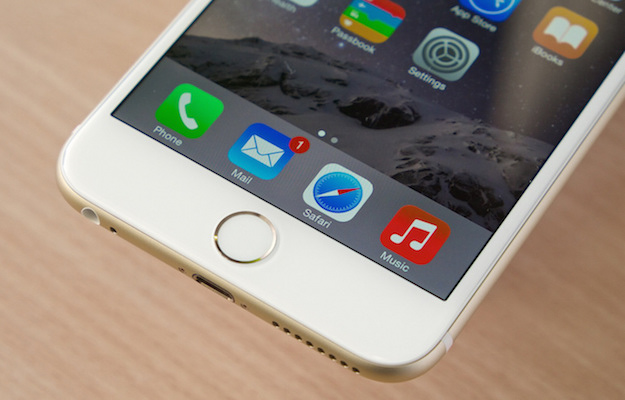I already found an iPhone 8 deal-breaker, and I can only hope that Apple’s fix will be spectacular.
My first real experience with Touch ID started with the iPhone 6, a year after Apple introduced it, and I haven’t stopped using it since. It’s incredibly easy to unlock the phone, pay for content, and even unlock my Mac. Yes, there’s an app for that, too.
Touch ID is not perfect, and I still have to type in the password — what a chore! — whenever my fingers are wet or dirty. That’s why I had high hopes for Apple’s fingerprint sensor of the future, which won’t be hindered by such issues. However, two independent reports from sources who have great track records “leaking” iPhone details said the iPhone 8 will lack one of the iPhone’s most useful features.
There’s no Touch ID sensor on the iPhone 8, Ming-Chi Kuo and Mark Gurman said in separate reports on Monday. This isn’t the first time we’ve heard such predictions, which explain that Apple is still not able to achieve the same reliability with an optical fingerprint sensor inserted among the display’s many layers. I’ve often said these reports may be accurate. Touch ID as we know it may die off, only to be replaced by a different type of fingerprint-sensing tech that’ll be placed within the screen.
But Gurman’s report says that Apple’s going to simply replace the fingerprint sensor with face and eye scanning technology that’s a lot more advanced and more secure than anyone else’s — cough, Samsung, cough. Samsung was first to implement iris-based phone unlocking, but the technology can supposedly be hacked quite easily.
Apple’s iris sensor will also incorporate a depth sensor that will prevent hackers from using photos to fool it. Furthermore, the sensor can supposedly scan a user’s iris and face “within a few hundred milliseconds,” and works even if the device is laying flat on a table.
Even so, I still think that unlocking it with my finger is a lot easier. I sometimes unlock the phone before I take it out of my pocket. I do it before I lift it up, and often without even looking at it, fully knowing that the Touch ID sensor will do its job — incidentally, it’s also why I, like so many other people, hate rear-facing fingerprint sensors.
Unlocking the iPhone and authenticating payments with the help of an iris scan doesn’t sound as comfortable or as convenient. Yes, technology makes me lazy that way, but I can’t imagine an iris scanner working just as quickly as a conventional Touch ID sensor, no matter what these reports say. And I can’t even fathom going back to typing my password every time I unlock the screen.
That’s not to say that I’ve given up hope on Apple succeeding at placing a fingerprint sensor under the screen before everyone else (among widely available devices, at least). But considering that both reports arrived in early July, at a time when the 2017 iPhone designs are finalized, I’m also starting to accept that at least one iPhone this year won’t have a feature I’ve taken for granted for more than three years now. So I’m waiting for Apple’s 3D-enabled iris-scanning camera to dazzle me just like Touch ID did.








